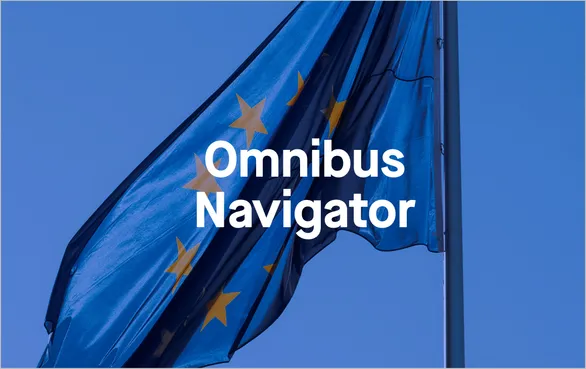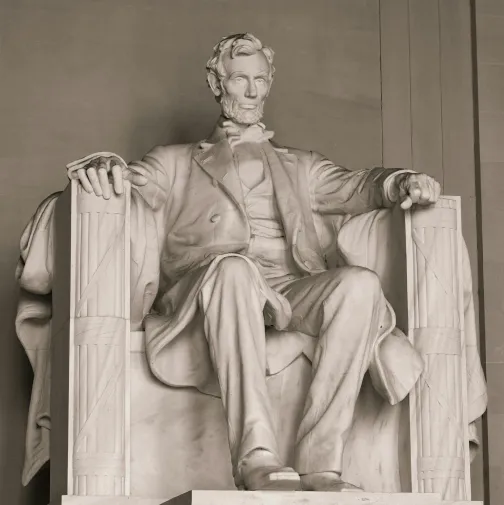The King’s Speech of 17 July 2024 marked a significant shift in the UK government’s approach to environmental and sustainability issues, signaling a renewed commitment to addressing major environmental problems and promoting green initiatives.
Delivered by King Charles III, the speech outlined a comprehensive agenda for the new government under freshly-elected Prime Minister Keir Starmer. It places sustainable development and renewable energy at the forefront of the nation’s priorities and addresses all three pillars of sustainable development: economic, environmental and social.
Starmer’s government unveiled a package of bills focused on renewable energy, transport, and planning. It aims to take a holistic approach to tackling environmental challenges With a multi-faceted strategy to create a more resilient and eco-friendly economy while addressing pressing climate concerns.
The agenda also includes fostering a green economy. The speech underscored the importance of protecting the planet for the benefit of present and future generations, ensuring sustainable practices that support human progress into the distant future.
A key takeaway from the King’s Speech was the introduction of stricter environmental regulations in the UK. These new measures aim to reduce pollution and promote sustainable practices across various sectors. By tightening regulations, the government says it wants to accelerate the transition to a greener economy and ensure that businesses and industries are held accountable for their environmental impact.
The establishment of Great British Energy
The speech formally marked the incoming government’s commitment to making the UK a “clean energy superpower.” This ambitious goal involves significant investments in renewable energy infrastructure and technology – and crucially, the creation of Great British Energy (GB Energy), a public clean energy company headquartered in Scotland. This initiative is designed to accelerate investments in renewable energy, particularly offshore wind.
Sweep’s CEO Rachel Delacour was quoted in The Guardian saying that this is “a major step in the right direction for the UK’s journey towards net zero”. She added:
All organisations need to tackle their greenhouse gas emissions, and governments creating the conditions for them to access cleaner energy is a key part of the puzzle.
However, it is crucial that the government put the appropriate structures in place around a project of this size. This means monitoring it through stringent data collection processes, understanding the impact Great British Energy will have on the environment itself, and providing its users – especially businesses – with the detailed insights needed to reduce carbon emissions. It is only through taking such measures that Great British Energy can truly monitor its impact across the UK and support UK businesses to meet science-based climate targets.
By prioritizing clean energy, the UK aims to create new jobs, stimulate economic growth, and reduce its dependence on fossil fuels. This shift not only addresses environmental concerns but also positions the UK as a leader in the global transition to sustainable energy sources, meeting the needs of the present without compromising the ability of future generations to meet their own needs (The definition of ‘sustainable development’ by the UN World Commission).
Sustainable transport and infrastructure
Another notable aspect of the King’s Speech was the focus on sustainable transport and its role in balancing economic development with environmental and social factors, particularly through the enhancement of public transportation. These initiatives aim to reduce carbon emissions from the transportation sector, which is a significant contributor to the UK’s overall greenhouse gas emissions. The new government plans to improve and expand public transport networks, which can significantly reduce the carbon footprint of a given region or city by decreasing reliance on private vehicles and lowering overall emissions. Another way in which the carbon footprint of a given area can be reduced, is by offering more sustainable alternatives to private car usage. This can be achieved via initiatives which aim to promote electric vehicles, or by investment in cycling and walking infrastructure, to give two examples. Additionally, the government plans to address the environmental impacts of transport, such as pollution and biodiversity loss, and mitigate them through sustainable practices.
Biodiversity and environmental sustainability
The King’s speech also addressed the critical issue of biodiversity and nature conservation, emphasizing the importance of environmental sustainability. Protecting ecosystems is essential not only for maintaining the planet’s health but also for supporting human well-being and resilience in the face of climate change. The government has pledged to protect and restore natural habitats, increase green spaces in urban areas, and implement measures to safeguard endangered species. It’s widely acknowledged that the sustainable management of natural resources is crucial for conservation efforts, ensuring that natural systems can continue to provide the resources needed for economies and society.
Sustainable practices in agriculture and food production
Agriculture policies and issues around food production have sparked large-scale farmers’ protests in parts of the UK in the last year, and the new government’s direction on farming policy will be closely-scrutinized. The King’s Speech outlined plans to promote sustainable farming practices and support local food systems, emphasizing social sustainability. This includes incentives for farmers to adopt environmentally friendly methods, reduce chemical inputs, and enhance soil health. Sustainable farming not only ensures food security but also minimizes the environmental impact of food production. Economic sustainability is crucial for long-term agricultural productivity, ensuring that farming operations can continue over a long-term horizon with adequate resources, workers, and consumers to buy their products. Sustainable farming practices are crucial for reducing greenhouse gas emissions, preserving water resources, and maintaining soil fertility – all of which are all vital for long-term agricultural productivity.
The need for international collaboration
At a time when international co-operation is becoming increasingly fragmented, with diplomatic tensions between major nations and economic blocs, there are concerns in many quarters that multilateral efforts on climate change will suffer. Amid this context, the speech highlighted the role of the United Nations in addressing global environmental challenges. The UK government reaffirmed its commitment to working with other nations to achieve global climate targets and support developing countries in their transition to low-carbon economies. This international outlook underscores the recognition that climate change is a global issue which requires collaborative solutions. One critical international issue is supply chain sustainability t, and the consideration given to the environmental and human impacts of products as they travel throughout the entire supply chain process, from raw materials sourcing to production, storage, delivery, and transportation. By participating in international climate agreements and sharing technology and expertise, the UK can help drive global progress towards a more sustainable future.
Data-driven solutions for climate change
One of the most significant aspects of the King’s Speech was the emphasis on the role of data and technology in driving sustainability efforts. The government announced plans to invest in advanced data management systems and analytics to track and reduce carbon emissions more effectively. This focus on data-driven solutions aligns with the growing recognition of the importance of accurate measurement and reporting in achieving sustainability goals. Carbon management plays a crucial role in this process, as it involves the systematic tracking, reduction, and offsetting of carbon emissions to meet sustainability targets.
Commenting on this aspect of the speech, Rachel Delacour, CEO of Sweep, the leading carbon and ESG data management platform, said, “The government’s commitment to leveraging data and technology in the fight against climate change is a game-changer. By prioritizing accurate carbon measurement and reporting, we can make informed decisions and drive real, tangible progress towards our sustainability goals. This approach will not only benefit the environment but also create new opportunities for innovation and growth in the green economy.”
A just transition to a green economy
The King’s Speech also addressed the need for a just transition to a green economy. The government outlined plans to support workers and communities via “green jobs” that may be created amid the shift away from carbon-intensive industries. The focus on green jobs emphasizes the importance of maintaining social equity as the economy decarbonizes. More than half of the world’s GDP is vulnerable to nature loss, and many voices are calling for the importance of preserving ecological integrity to be recognized by governments. Ensuring a fair transition is crucial for maintaining social stability and equity as the economy undergoes significant changes. Social stability is essential in the transition to a green economy, as it helps communities adapt and thrive during economic shifts.
An important step forward
The 2024 King’s Speech represents a significant milestone in the UK’s journey towards a more sustainable future. By placing green initiatives and environmental protection at the heart of its legislative agenda, the government is setting a clear commitment to addressing the urgent challenges of climate change and environmental degradation. The comprehensive approach outlined in the speech, covering everything from energy and transport to agriculture and biodiversity, provides a roadmap which, if realised, has the potential to transform the UK into a leader in sustainability and environmental stewardship.




